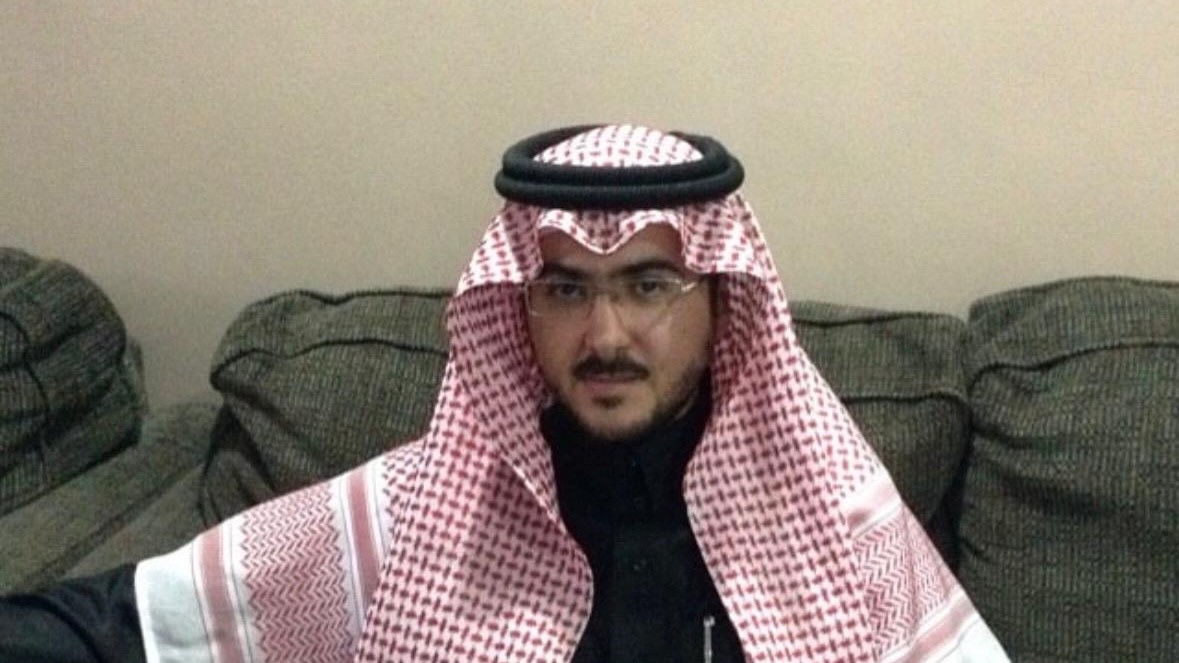As Trump visits Saudi Arabia, groups call for the kingdom to end repression of journalists
Saudi Arabia

As global attention turns to U.S. President Donald Trump’s first international visit to Saudi Arabia on May 13, many journalists inside the kingdom will be unable to cover the event as they are behind bars, banned from writing, or silenced by fear of censorship.
We, the undersigned organizations, call on the Saudi authorities to release all detained journalists and writers, lift arbitrary travel bans, end legal and digital attacks, and uphold press freedom.
We further urge the Trump administration and the U.S. Congress to take the necessary steps to enact legislation to protect U.S.-based journalists — whether Saudi, American, or international — from Saudi Arabia’s transnational repression and surveillance via spyware.
More than seven years since the gruesome assassination of Washington Post columnist Jamal Khashoggi inside the kingdom’s Turkish consulate on October 2, 2018 — an operation U.S. intelligence concluded was approved by Crown Prince Mohammed bin Salman (MBS) — there has been no meaningful accountability for his murder. This has only emboldened Saudi authorities to escalate their repression of independent and critical journalists, cartoonists, and writers, and entrenched a climate of fear.
Saudi Arabia is one of the most dangerous countries for journalists, with at least 10 behind bars on December 1, 2024, making it the 10th worst jailer of journalists globally in CPJ’s latest annual prison census. According to Reporters Without Borders (RSF) 2025 World Press Freedom Index, Saudi Arabia ranks 162nd out of 180 countries and territories.
One of those behind bars is Mohammed Al Ghamdi, a Saudi cartoonist who drew under the pen name Al Hazza for the Qatar-based Lusail newspaper. On an undisclosed date in 2024, Al Ghamdi was sentenced to 23 years in prison on charges that his cartoons were sympathetic to Qatar and insulted the Saudi government. Al-Ghamdi was arrested in February 2018 and initially sentenced to six years in prison and a travel ban. Instead of being released after completing his sentence in 2024, authorities extended it by 16 years, with no option to appeal, despite the normalization of relations between Saudi Arabia and Qatar.
Even international journalists visiting the kingdom to report are not safe. In July 2024, Turkish journalist Kurtulus Demirbas was detained for several days by Saudi authorities while reporting on Turkey’s under-19 football team. He was released following Turkish diplomatic intervention, according to news reports. The privately owned newspaper Türkiye Today reported that Demirbas, who does not speak English, showed other journalists a photo of Khashoggi.
While 2025 has seen the release of several political dissidents, human rights defenders, and journalists, including Palestinian journalist Hatem al-Najjar, they are often subject to less visible repression through travel bans and prohibitions from working in journalism or writing. Among them is Saudi blogger Raif Badawi, who was freed in 2022 after completing a 10-year sentence, yet cannot reunite with his family in Canada because of a 10-year travel ban.
Censorship is another major area of concern. Saudi authorities routinely use the Anti-Cybercrime Law and the 2017 Law on Combating Crimes of Terrorism and its Financing to suppress public discourse and crack down on freedom of expression.
In 2023, Saudi authorities proposed a new law to overhaul the framework governing all forms of media, including digital platforms and content creators, requiring them to obtain government licenses before engaging in any media activity. It also proposes sweeping restrictions, banning so-called “fake news,” criticism of Islam or the royal family, and content deemed to threaten national security, public order, the economy, or Saudi Arabia’s foreign relations. While King Salman bin Abdulaziz al-Saud has yet to issue a decree to pass the media law, it signals a continued intolerance for freedom of speech or the press.
Additionally, the Saudi government relies on imported surveillance technologies to target journalists and human rights defenders inside the kingdom and engage in transnational repression inside the United States and elsewhere.
On May 6, 2025, a California jury ordered the Israeli firm NSO Group to pay more than $167 million for hacking more than 1,400 WhatsApp users with its Pegasus spyware. In the six-year legal battle, NSO named Saudi Arabia as a spyware customer and one of the governments behind the 2019 hack, in which New York Times journalist Ben Hubbard, known for his reporting on MBS, was among those targeted.
The kingdom has also used online disinformation campaigns to harass journalists. In 2020, Gulf-based Al Jazeera journalist Ghada Oueiss filed a lawsuit in Florida, accusing MBS and several Florida-based social media users of hacking her phone, leaking personal photos, and orchestrating online harassment. One U.S.-based influencer was later investigated by the FBI for likely receiving payment from a Saudi prince to post tweets against Oueiss, the Forbidden Stories network reported.
Websites that publish critical content about the Saudi government or belong to human rights organizations are routinely blocked. These include the London-based news site Middle East Eye and pan-Arab newspaper Al-Araby Al-Jadeed and the website of the nonprofit Democracy for the Arab World Now, which was founded by Khashoggi.
We call on Saudi authorities to:
- Release prisoners of conscience: Immediately and unconditionally release all individuals, including journalists, detained or imprisoned solely for exercising their rights to freedom of expression, association, and peaceful assembly. Ensure that all convictions and sentences are overturned, and any outstanding charges dropped.
- End arbitrary travel bans: Cease the use of arbitrary travel bans as a tool to punish, intimidate, or silence activists, journalists, human rights defenders, and their families. Lift all travel bans imposed solely for peaceful activities and fully respect the right to freedom of movement, expression, peaceful assembly, and association.
- Reform repressive legislation targeting the media: Repeal or significantly amend laws — including the Anti-Cyber Crime Law and the Counter-Terrorism Law — to ensure they do not criminalize peaceful criticism of government policies, practices, or officials, and that all forms of protected speech are upheld. Ensure that the proposed media law fully complies with international standards protecting press freedom and journalism and does not impose undue restrictions on independent media or digital platforms.
- End digital repression: Refrain from using spyware or conducting online misinformation and disinformation campaigns targeting journalists, human rights defenders, and activists for their reporting or peaceful expression of opinions. Unblock the websites of independent media outlets and human rights organizations and ensure unrestricted access to these sites for individuals inside the kingdom, without fear of retaliation.
Signed:
1. Access Now
2. ALQST for Human Rights
3. Artists at Risk Connection (ARC)
4. Cartooning for Peace
5. Cartoonists Rights
6. Committee to Protect Journalists (CPJ)
7. DAWN (Democracy for the Arab World Now)
8. Freedom Cartoonists
9. Gulf Centre for Human Rights
10. HuMENA for Human Rights and Civic Engagement
11. Law and Democracy Support Foundation (LDSF)
12. PEN America
13. REDWORD for Human Rights & Freedom of Expression
14. Reporters Without Borders (RSF)
15. SANAD Human Rights Organisation
16. SMEX (Social Media Exchange)






